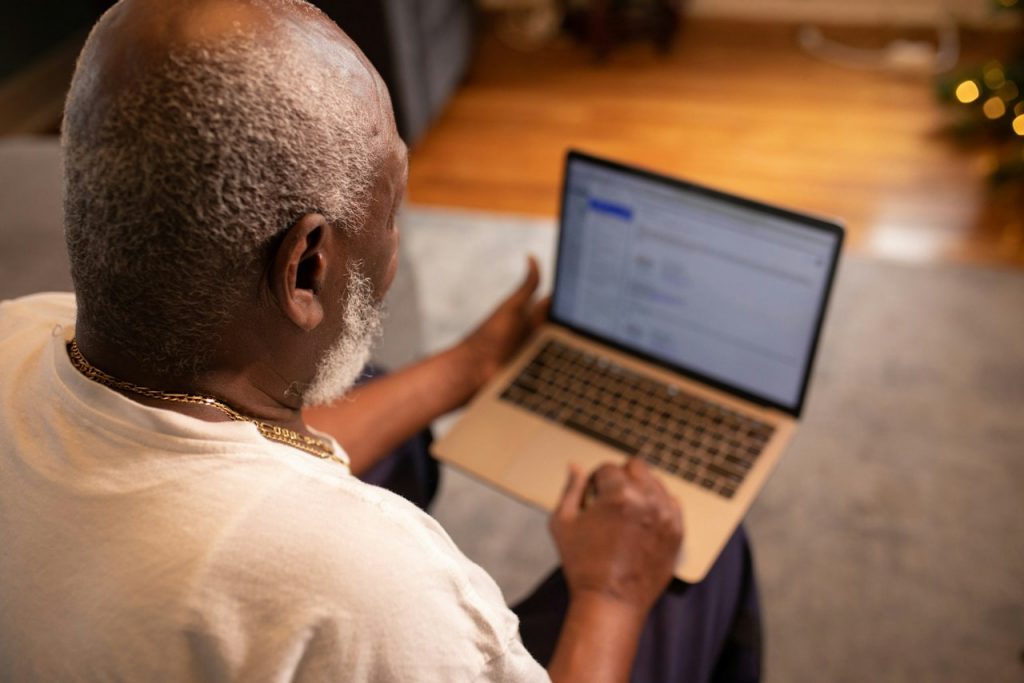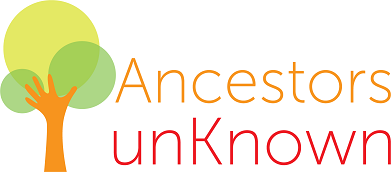Can a DNA test tell the family story? These are our highs and lows.
“What about DNA tests?”
It’s a common and reasonable question – especially after I’ve gone on and on about the value of our untold histories and family history research. If Ancestors unKnown is trying to close the gaps in family history knowledge, DNA testing is a logical step in the process. For some researchers, it’s the entire process.
DNA testing is an incredible tool that can take our family history research two or more steps further. This is especially true for anyone without access to oral histories, archived documents, or other connections to the past. We would never discourage the use of DNA.
However, Ancestors unKnown doesn’t focus on DNA testing as a solution to uncover erased, marginalized, or otherwise untold family histories.
Why?
Let’s consider some of our opinions – the highs and lows – when it comes to DNA and family storytelling. Please share your thoughts in the comments, including differing opinions!
HIGH: Breaking brick walls
Plenty of people face brick walls as soon they start researching their family history, whether it’s because of an adoption, a family secret, or otherwise unknown or disappearing family member(s). For those of us with ancestors who survived slavery and forced migrations, brick walls can fully consume our family trees by the 19th century.
When the trails of family folklore and archives go cold, DNA testing can break through some of those brick walls. Since our blood can reveal some unwritten details, it can answer questions that have been asked for generations, such as, “What regions/countries in Africa did my ancestors come from?”
Even without much context, such details can provide deep fulfillment.
LOW: Too Conclusive
A DNA test can lead someone to draw one conclusion about who they are or where they come from.
For example, “I got my DNA test results, and I’m from Senegal!”
This is exciting news. Absolutely. Even if only one ancestor came from Senegal, a person should celebrate this important detail. But this statement is too decisive. It overlooks many other people and layers that comprise a person’s identity.
Unless most or all ancestors came from one part of the world, which is highly unlikely for our enslaved ancestors or similarly disrupted histories, DNA tests won’t lead to one neat conclusion about your family history.
If anything, the results should lead to follow-up questions about all the regions and cultures that are represented among your ancestors.
HIGH: Empowerment
Not knowing much about who you are or where your ancestors came from can lead to a sense of powerlessness, frustration, and/or anger. And before the era of DNA testing, we were left to wonder without hope of an answer.
But now, DNA testing is relatively accessible and has given plenty of people some agency to seek answers about their identities. Regardless of the details or answers provided, the act of testing one’s DNA can empower as much as it enlightens.
HIGH: Connecting with new family members
When using one of the bigger companies for DNA testing, family researchers will likely come across people on that platform who share some of the same ancestors. As this technology has improved, it’s becoming even easier to find relatives and determine how you’re related. This can lead to fun and exciting exchanges.
By connecting family members, both close and distant, DNA testing can open doors to meaningful relationships. Also, relatives can share new sources of family information, including stories, photos, and documents that shed more light on a family’s story.
LOW: Skipping generations
Many family historians aim to go as far back in their family’s history as possible.
Best practices recommend starting in the present, and then working your way back through the generations. If the research gets you to the 19th, 18th, 17th, and even further centuries, it’s profoundly rewarding.
However, a family historian wouldn’t recommend jumping directly from the 20th century to ancestors who lived centuries ago. That creates too many gaps and diminishes the lives and experiences of the ancestors who lived more recently.
For example, remember the test results from Senegal? Where have the person’s ancestors been since they were taken from Senegal? These places and events have a significant place in a person’s identity and, whenever possible, shouldn’t be overlooked. This could include a person’s grandparents, great-grandparents, and other family members in recent generations.
LOW: Commercial Profit
DNA technology has come such a long way over the past decade, and so have the companies that offer the services. In the early days, many of us were skeptical about corporate motivations and their process for acquiring DNA samples, especially throughout the Global South (note: I’m still skeptical). However, this skepticism has been outweighed by the value and increasing quality of the services provided.
If these companies continue answering critical questions about people’s history and identity, then folks will always be willing to pay.
But such deep, unanswerable questions in someone’s family’s history shouldn’t be a source of profit. This feels like a conflict of interest.
Perhaps the ulterior motives of these corporations encourage us to seek these warm and fuzzy, yet incomplete conclusions about our family histories. This can make researchers more reliant on that company to answer family questions instead of seeking the tools to dig deeper themselves.
Conclusion: DNA shouldn’t work alone
Working through these complicated beliefs about DNA testing, the conclusion is actually quite simple. If possible, combine DNA testing with family history research to discover a more complete family history.

Our family narratives are deeply personal and multifaceted, encompassing not just our genetic heritage but also the cultural, social, and emotional dimensions of our family’s past. DNA tests can provide valuable clues, but it is through our efforts to gather, preserve, and share our family stories that we can truly unravel the truth about who we are.
Since DNA tests alone won’t capture the full breadth and complexity of our family stories, let’s view them as a starting point for discovery rather than the end of the journey. To truly understand our personal and family identities, we benefit from also delving into the archives of our memories, the stories passed down through generations, and the historical records that chronicle our ancestors’ lives.


